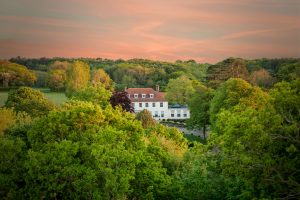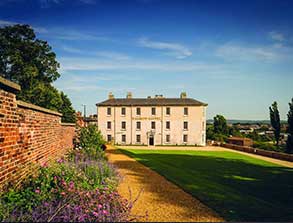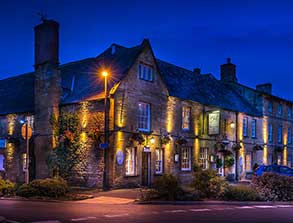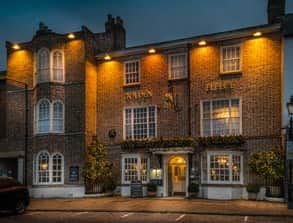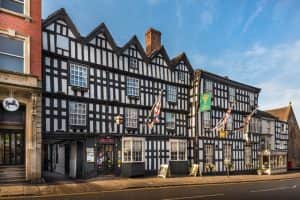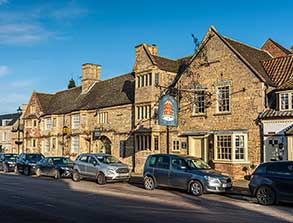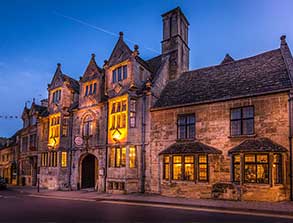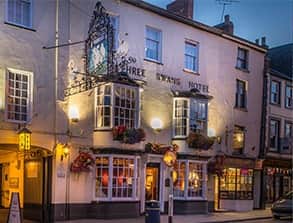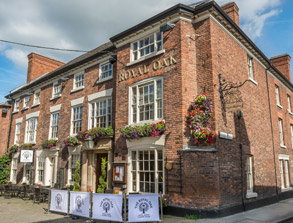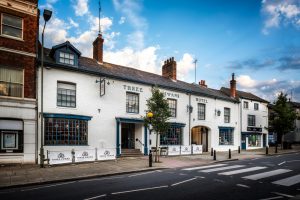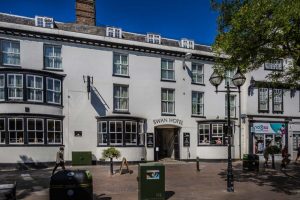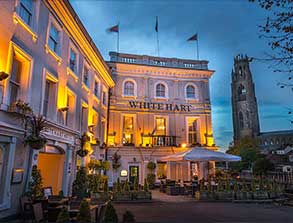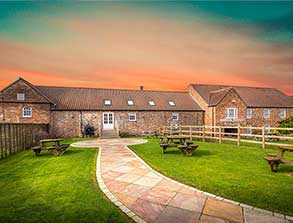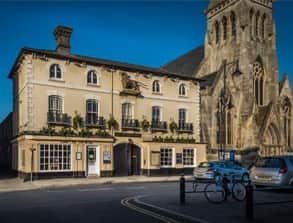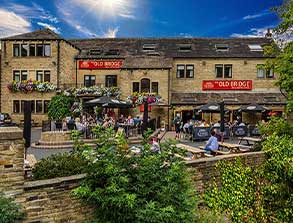The George in Amesbury, operating as an inn in the 16th century has continued business and almost certainly occupies the same site on the High Street, to the present day. A timber-framed building was built around 1560 to replace the original inn that was damaged by fire. Renovations were done after another fire in 1751 and in around 1908 the accommodation was expanded with the addition of a new brick wing.
During the English Civil War, the George became an overnight stay and headquarters for the Parliamentary commander-in-chief Thomas Fairfax on 29th/30th June 1645. He was urged by the preacher Hugh Peters to demolish ‘the monuments of heathenism at Stonehenge’. Fairfax would have had neither the time nor resources to consider this. After his success at the Battle of Naseby on 14 June 1645, Fairfax led his army past The George Hotel at a fast pace of 17 to 20 miles a day heading southwest to relieve Taunton.
In 1897 the Army started land purchase on Salisbury Plain for the purpose of establishing a military training centre. Melville Whistler, the manager of the George Hotel, was quick to market the hotel to attract business from the military camp. An advertisement was placed in Kelly’s 1898 Directory of Wiltshire.
The notice highlighted the attractions of “The George Hotel and Posting House”:
To those visiting Amesbury, Stonehenge, Salisbury Plains, the Military Camp, or other places of interest in the neighbourhood, this Hotel offers excellent accommodation.
On census day 31 March 1901 a number of members of the Royal Field Artillery were residents at the George Hotel.
The pioneer aviators, who tested their flight skills on the Salisbury Plain, brought more business to the George Hotel. Land for an airfield was purchased in the parish of Upavon, 8½ miles from Amesbury, and in 1912 the Central Flying School of the Royal Flying Corps was opened at Upavon. At the George Hotel on census day 2 April 1911 hotel guests were Cecil Howard Turner, a ‘publicity manager to aeroplane manufacturing company‘, and the French aviators Leon Verseprey and Maurice Tabuteau.
During the 1914–1918 war the George Hotel at Amesbury served as an officer’s mess until buildings were ready for use at Boscombe Down.
Read more in our History book – coming soon






